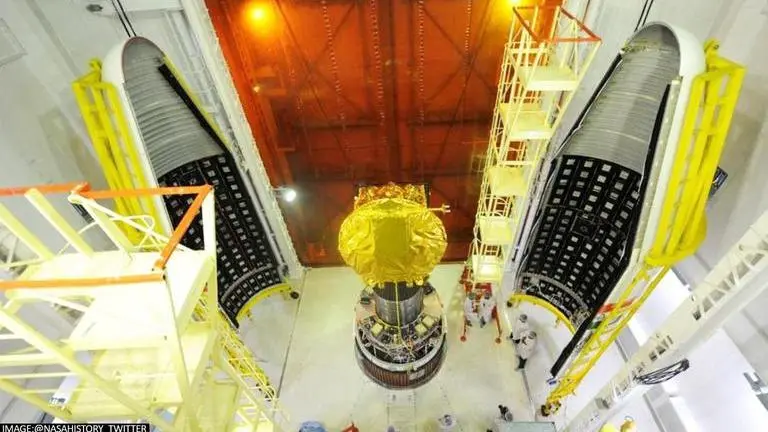Updated 27 September 2021 at 08:46 IST
India's Mars Orbiter Mission (MOM) probe, planned for 6 months, completes 7 years in orbit
The spacecraft which was initially planned just for six months was ISRO's maiden interplanetary mission. On September 24, 2021, MOM completed 7 years in orbit.
- Science News
- 2 min read

Mangalyaan, also known as the Mars Orbiter Mission (MOM) has completed 7 years in orbit. The Indian Space Research Organisation (ISRO) had successfully inserted the Mangalyaan into orbit on September 24, 2014, in its first attempt. The spacecraft which was initially planned just for six months was ISRO's maiden interplanetary mission. On September 24, 2021, MOM completed 7 years in orbit and is expected to have a mission life of another year.
"Indeed, a satisfying feeling," K Radhakrishnan who as the then Chairman of Indian Space Research Organisation (ISRO) led the Mars Orbiter Mission (Mangalyaan) team told news agency PTI on the milestone. All mission objectives have already been successfully met by the technology demonstration venture, as per ISRO officials.
Mangalyaan completes 7 years in Mars orbit
According to ISRO, some of the main lessons learnt through the Mangalyaan have been in the field of design and realisation of systems and subsystems, launch for interplanetary missions, insertion into other planet's orbit, operation of the spacecraft and scientific instruments around Mars orbit. The insights given by MOM will help India take up future interplanetary missions.
When it comes to the life of the spacecraft, ISRO said that the health of Mangalyaan is reasonably good considering that it was in the seventh year of the mission which was initially planned for only 6 months. The spacecraft is presumed to have a mission life of another year. M Annadurai, who was the Programme Director of MOM, said the spacecraft's "moving elements are facing some issues and some of the redundancies we have to switch over."
Advertisement
"I don't think we could have done better than what we have done," Annadurai said. "We have good inputs on seasonal affects on Mars atmosphere...surface. The mission has provided meaningful data also," he added.
The Programme Director also revealed that most Earth remote-sensing satellites typically had a mission life of seven to nine years, but Mangalyaan had helped India prove that a spacecraft can also be in operation around Mars for such a long period. Mangalyaan is said to have completed three Martian years.
"We have seen how changes happen on the Mars from one season to another, one Martian year to another Martian year," ISRO officials stated.
Advertisement
(With PTI Inputs)
Published By : Ananya Varma
Published On: 27 September 2021 at 08:46 IST
